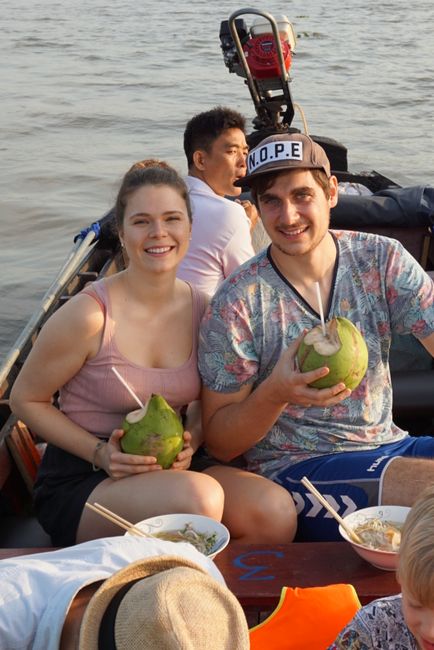20th and 21st day in Hue
បោះពុម្ពផ្សាយ: 16.03.2018
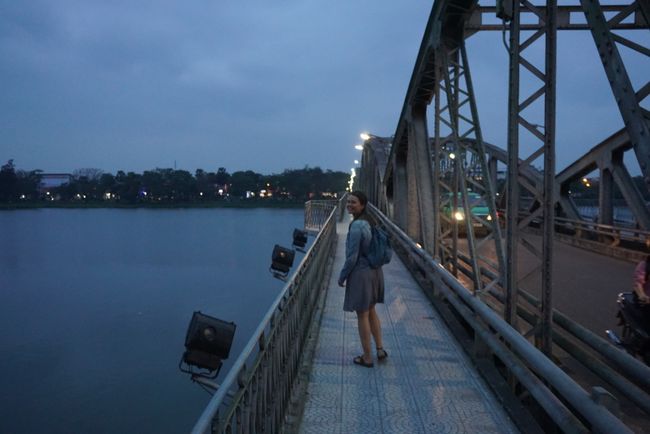
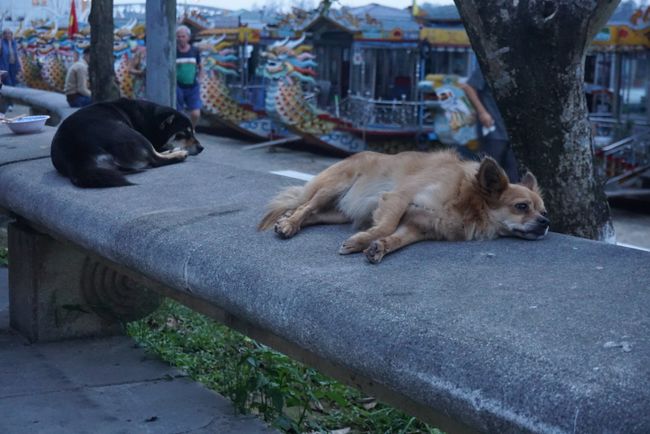
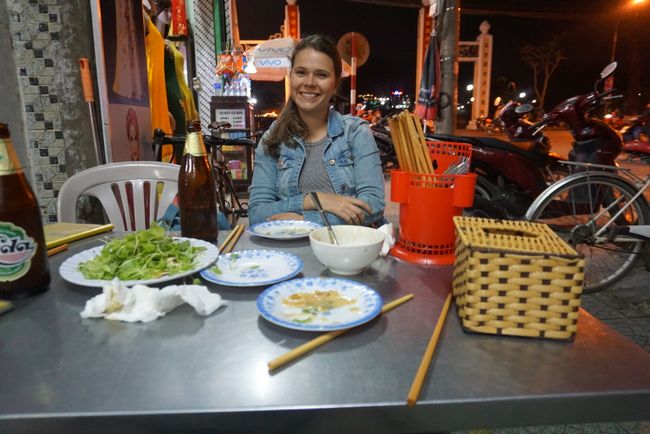
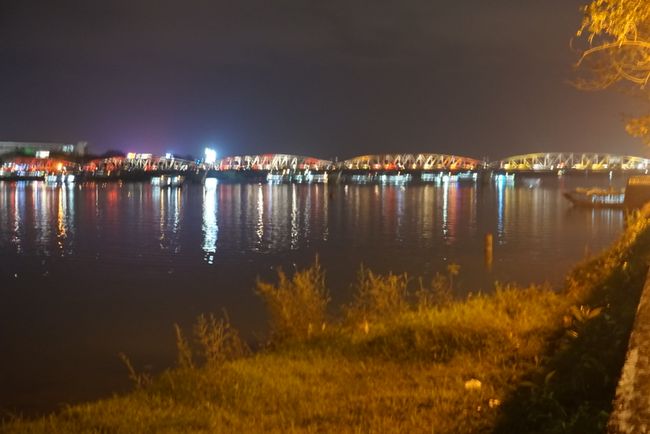
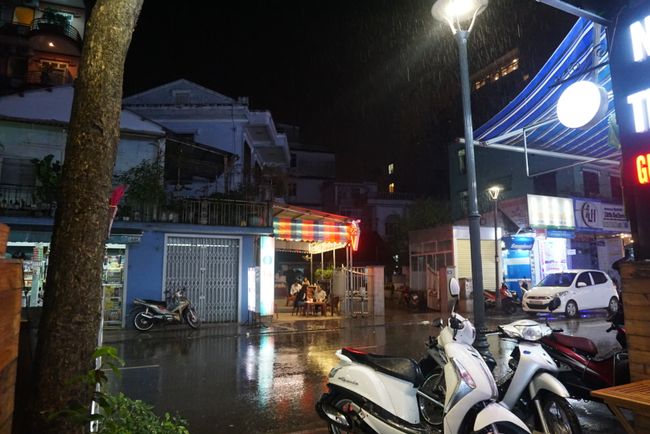
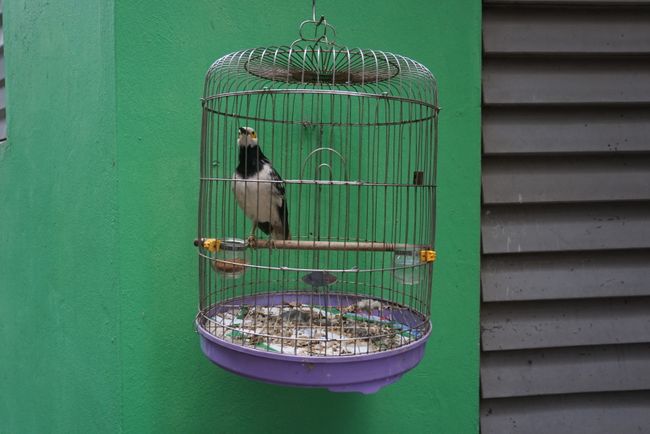
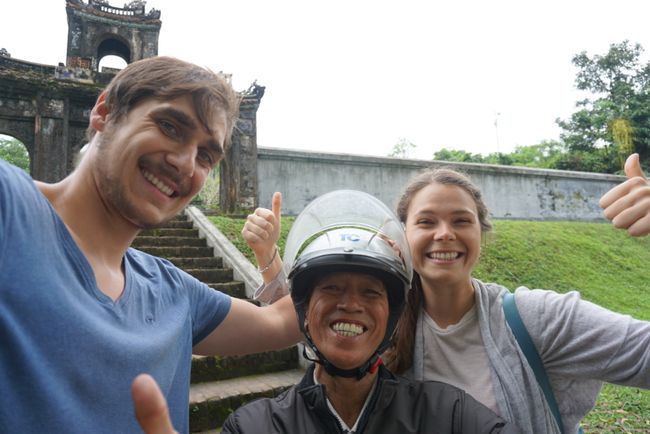
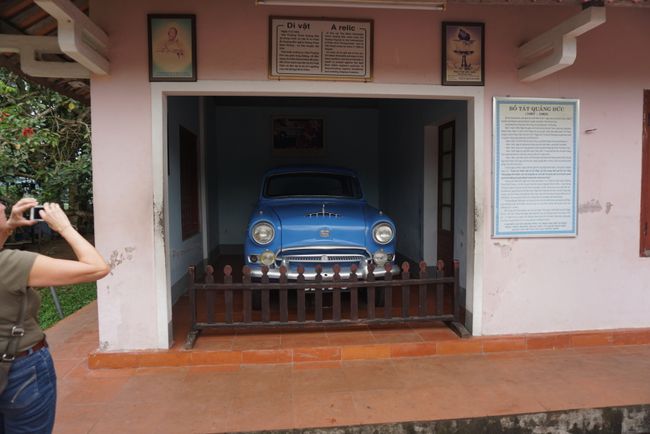
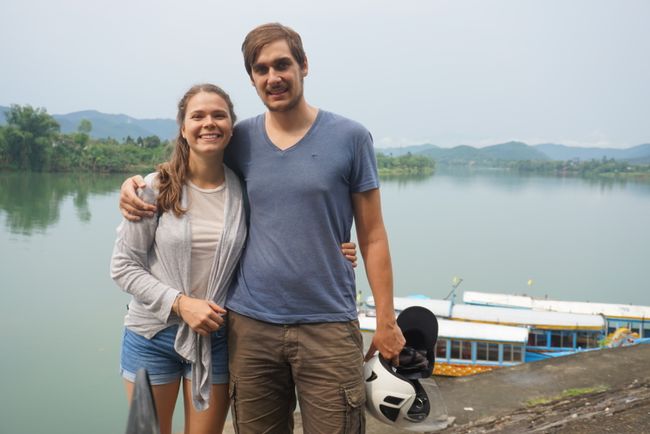
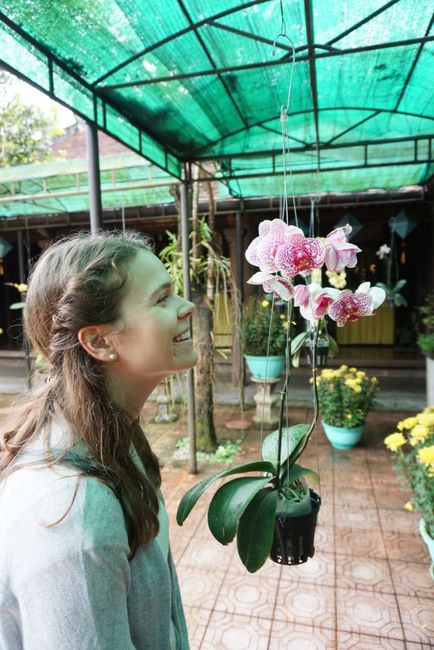
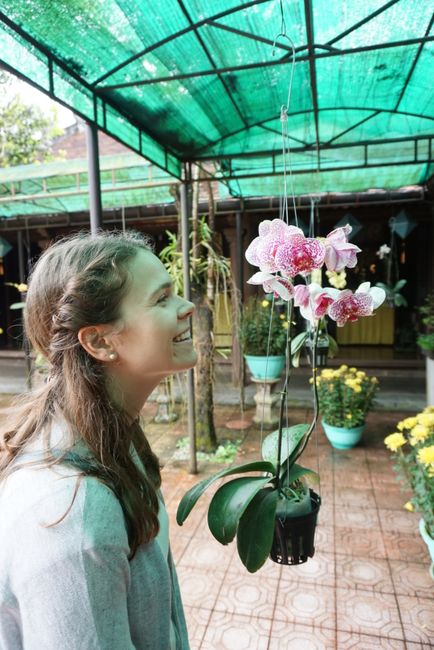
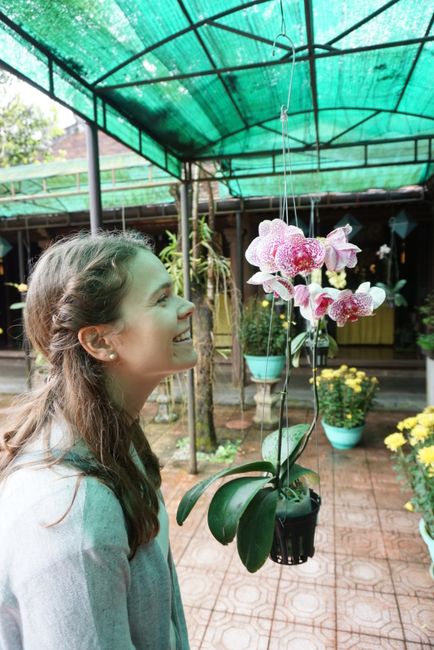
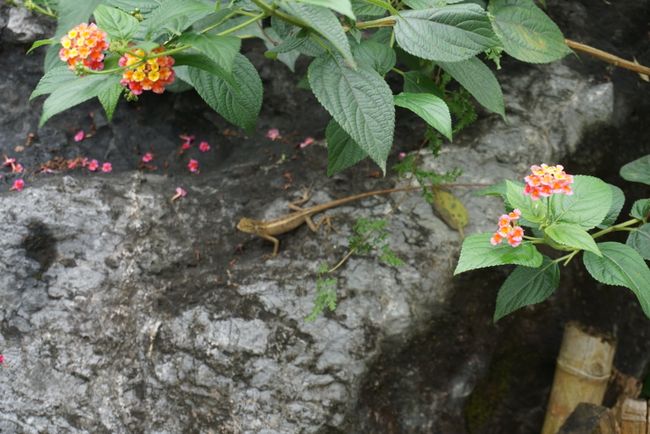
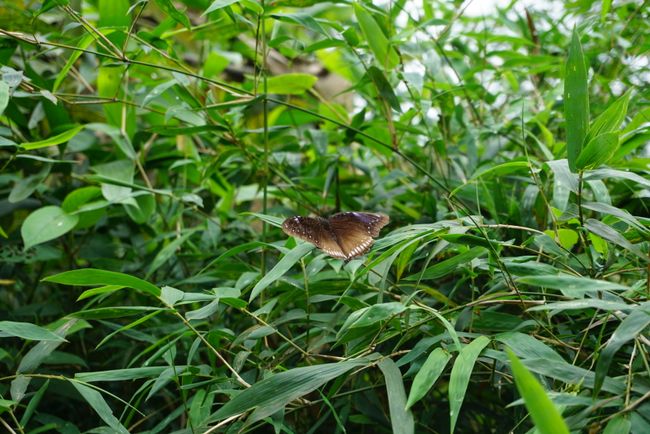
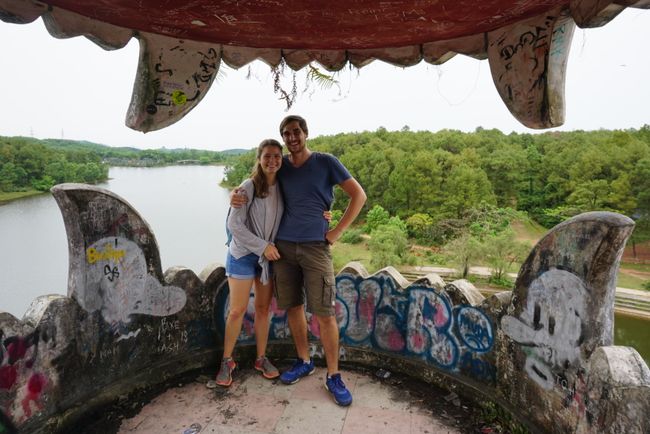
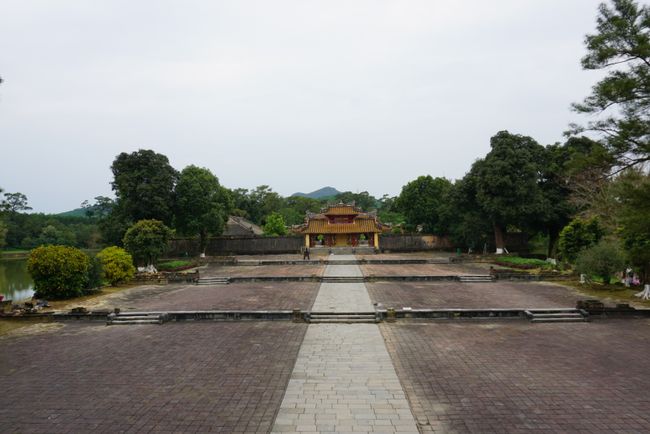
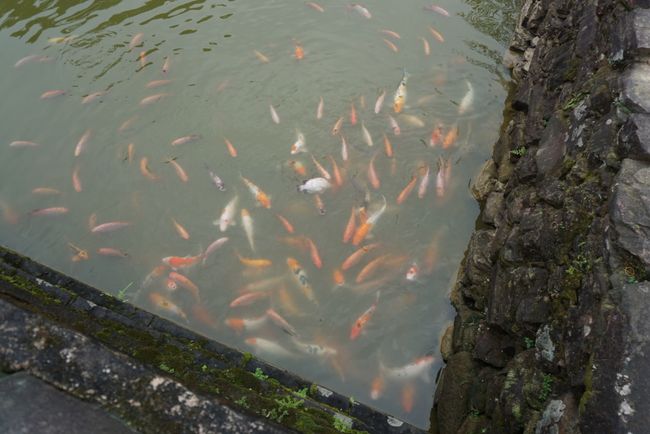
ជាវសំបុត្រព័ត៌មាន
With the OpenTourBus, we crossed the Hai Van Pass, the geographical watershed between South and North Vietnam (in a tunnel) and arrived safely in Hue. To our surprise, our hostel is fully booked due to issues with the booking system. We are being relocated to the sister hostel around the corner, which has the same standard, and we are okay with that.
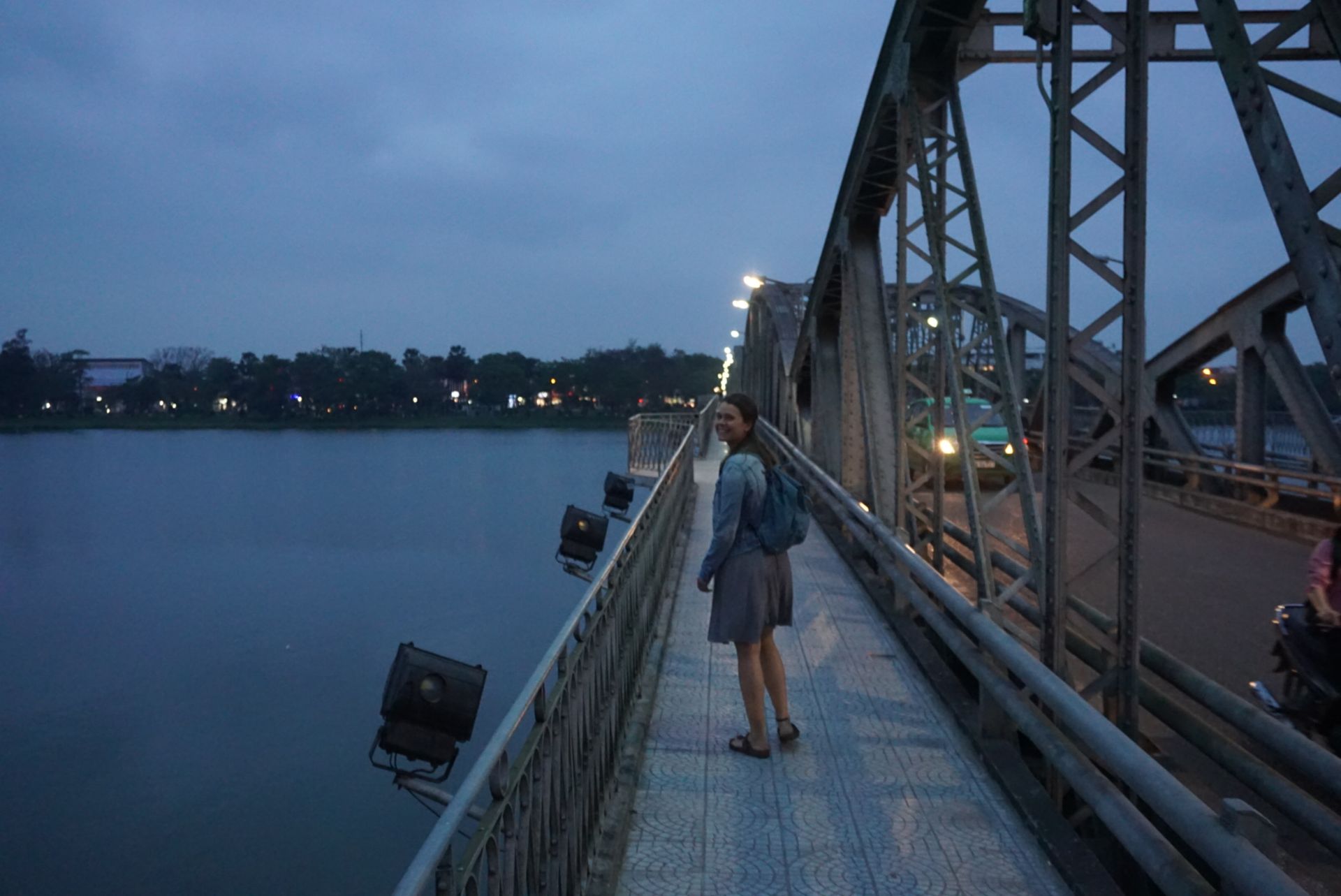
In the evening, we take a walk that leads us across the Perfume River, which flows through Hue.

We are a bit exhausted, just like the dogs in the picture. In the background, you can see the dragon boats, which are beautiful from the outside, but few tourists are enthusiastic about taking a ride on the river. Therefore, we prefer to observe from the outside.
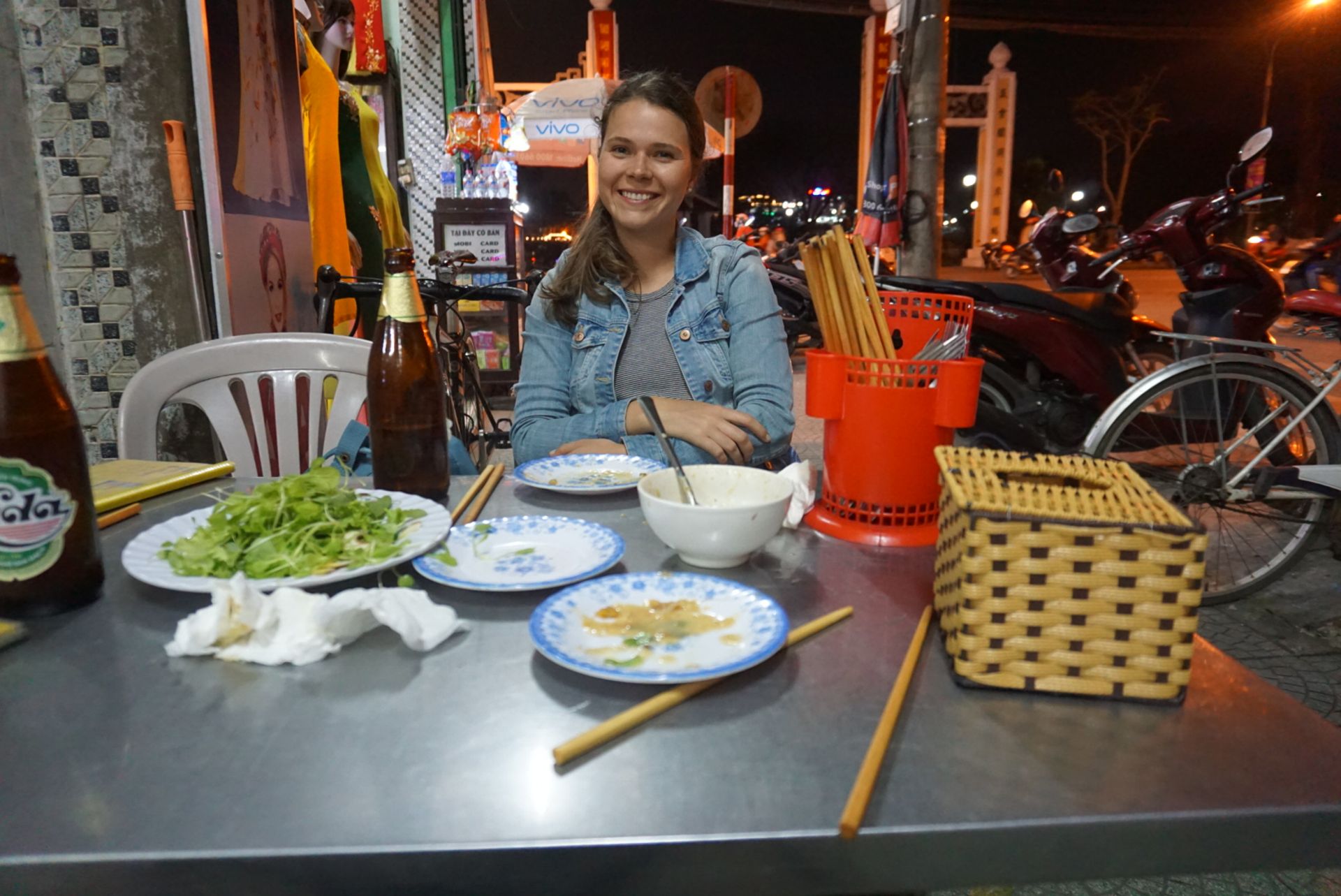
In a restaurant recommended by our guidebook, we try the culinary specialties of Hue. There are plenty of them, as there were supposedly emperors in the past who wanted to be served a different dish every day.
In the restaurant, the deaf-mute restaurant owner asks us with sign language and writing if we would like to explore the well-preserved pagodas and imperial tombs in the surrounding area of Hue (Hue itself, including the buildings of the citadel in the city, was almost completely destroyed during the Tet Offensive). Since we were already wondering how to reach those places, we agree to his offer.
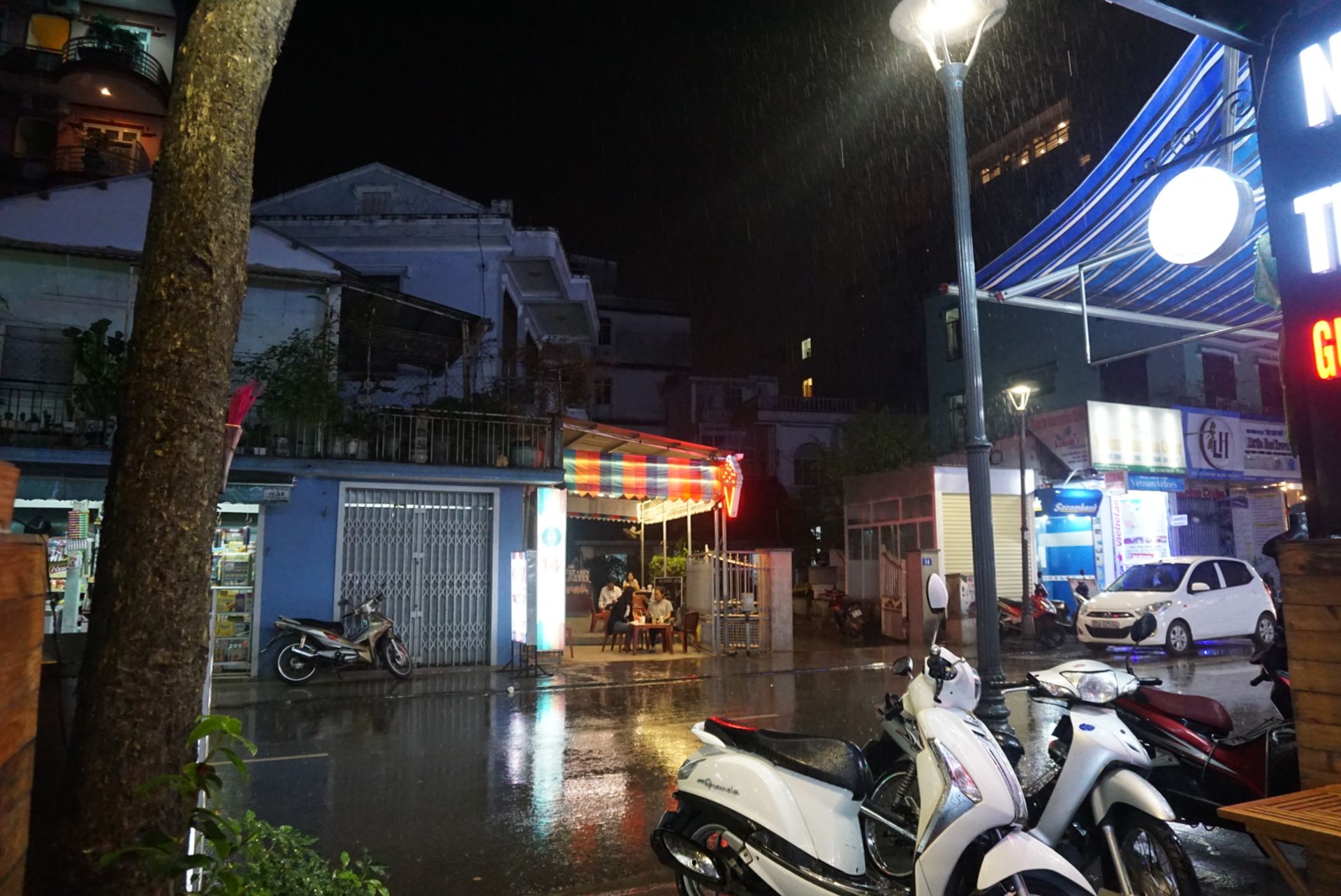
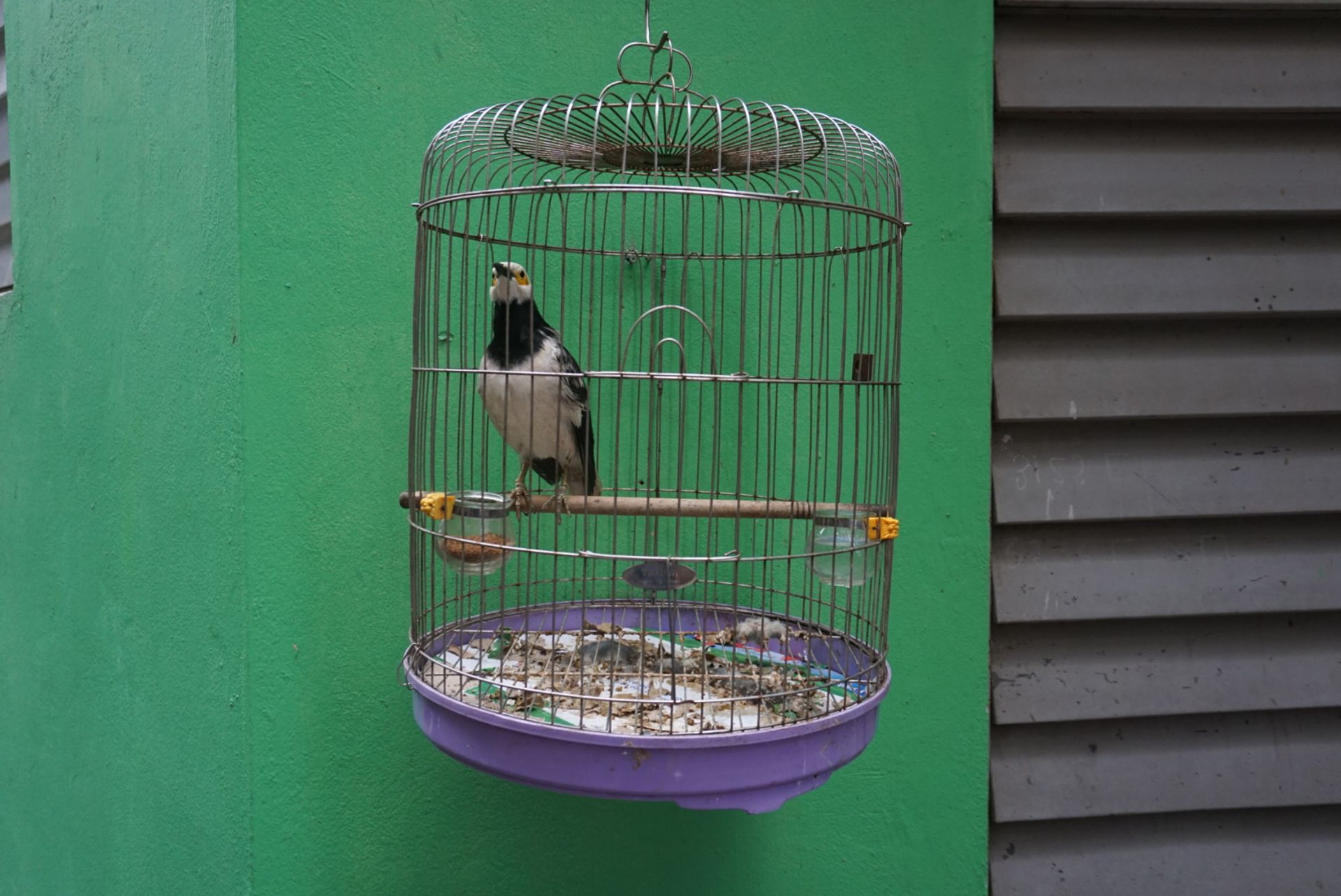

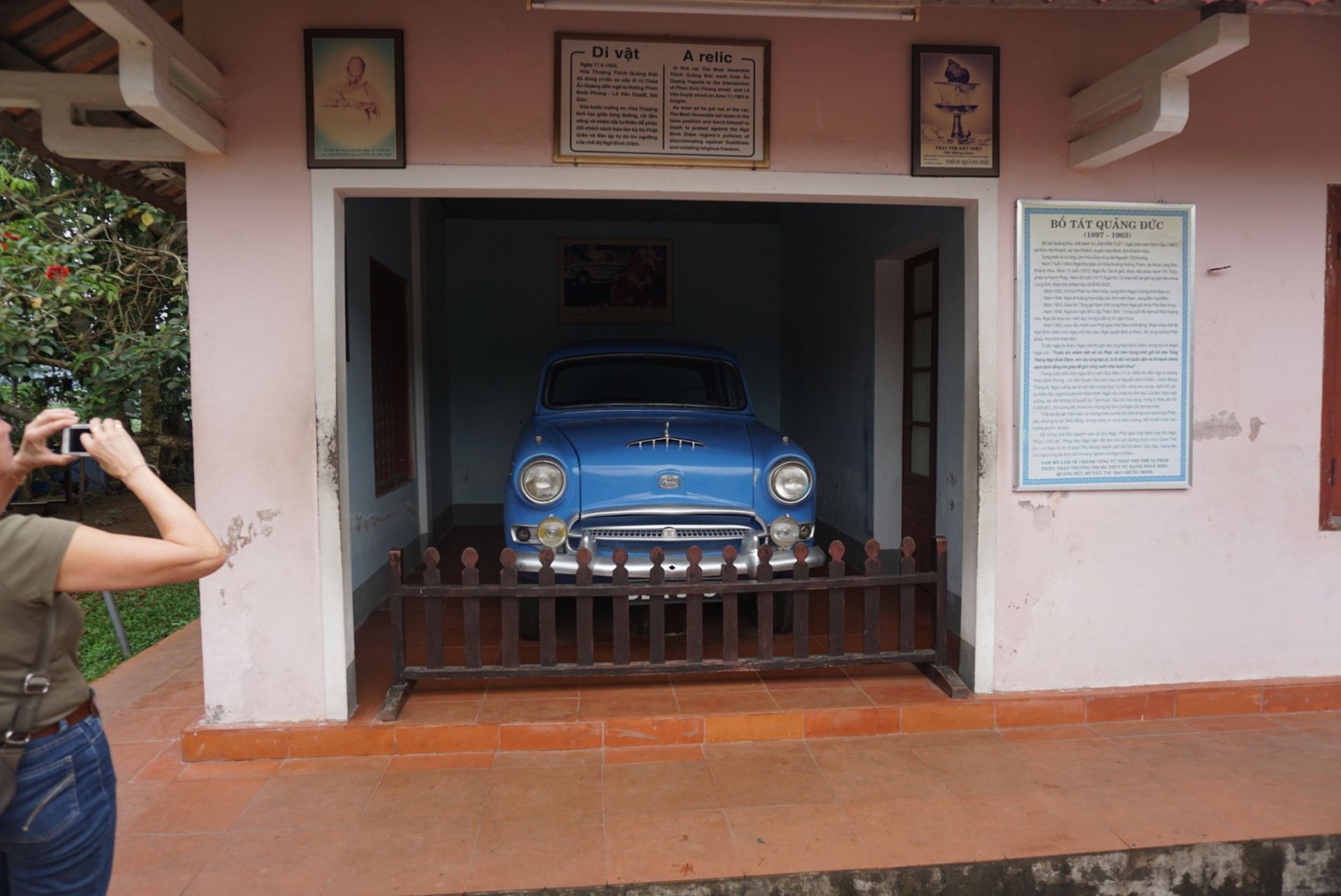

 In the garage of one of the monasteries stands the Austin car that the monk Thich Quang Duc drove to a street intersection in Saigon in 1963. The images of his self-immolation there in protest against the suppression of Buddhists by the Catholic-dominated regime in South Vietnam went around the world.
In the garage of one of the monasteries stands the Austin car that the monk Thich Quang Duc drove to a street intersection in Saigon in 1963. The images of his self-immolation there in protest against the suppression of Buddhists by the Catholic-dominated regime in South Vietnam went around the world.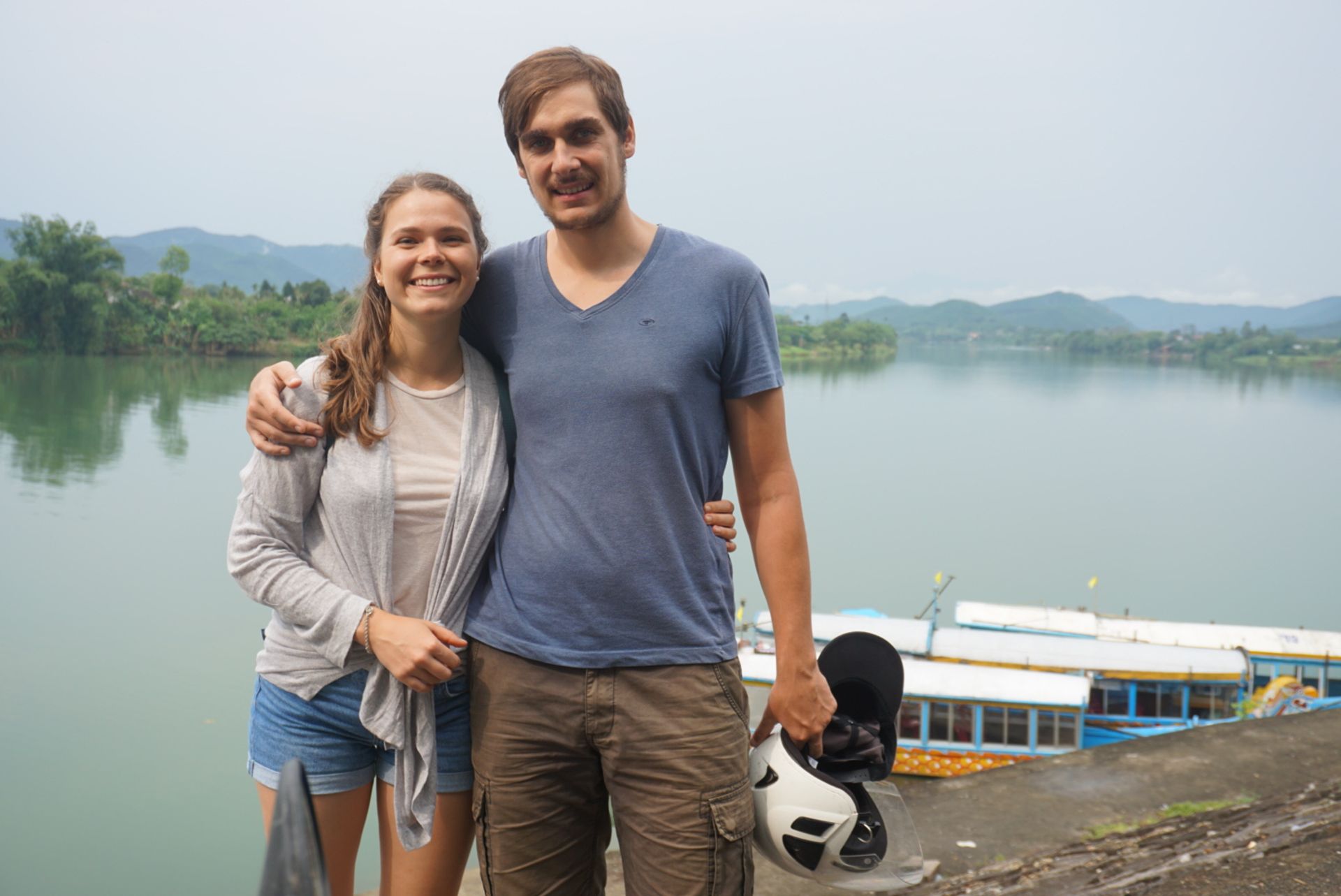
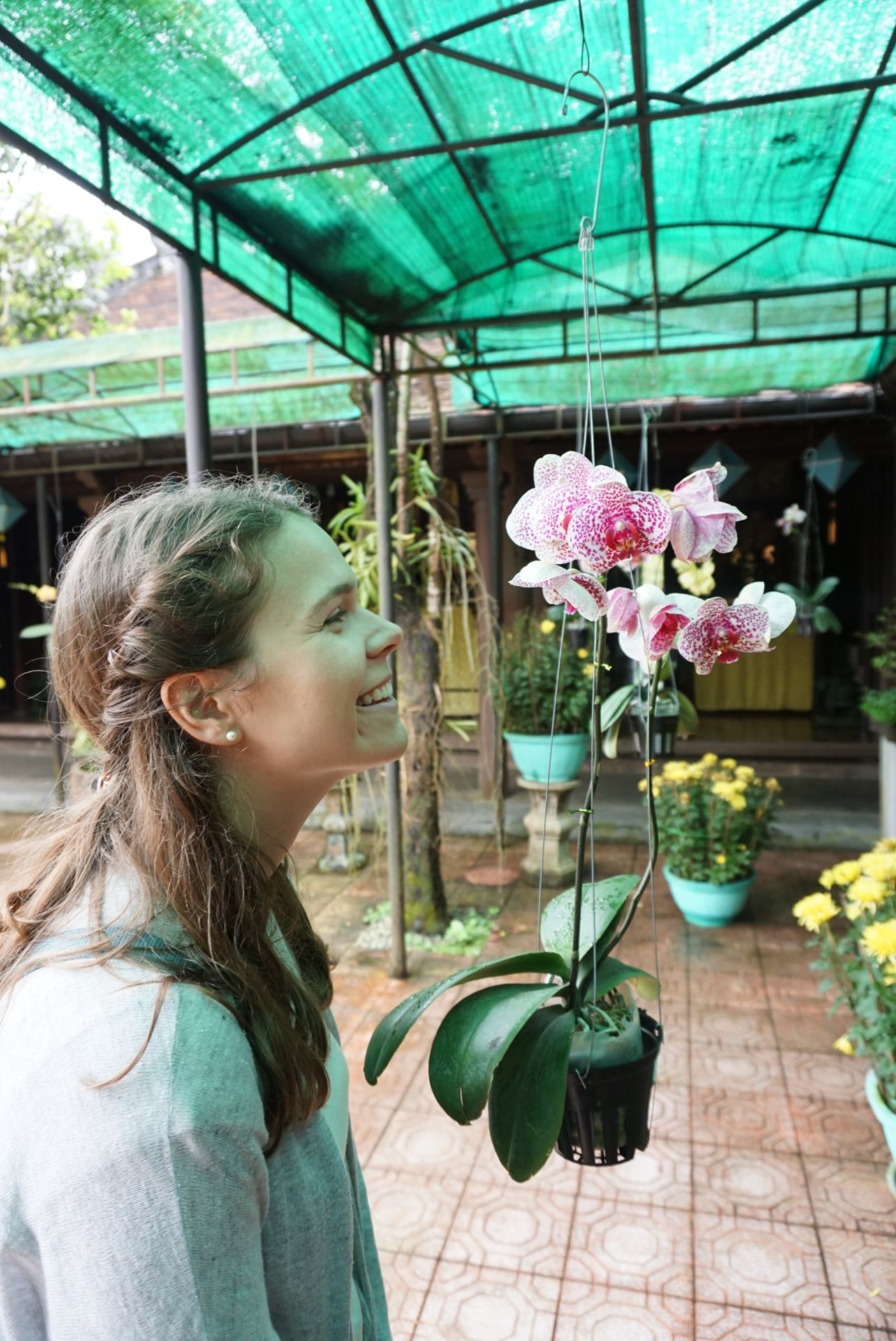
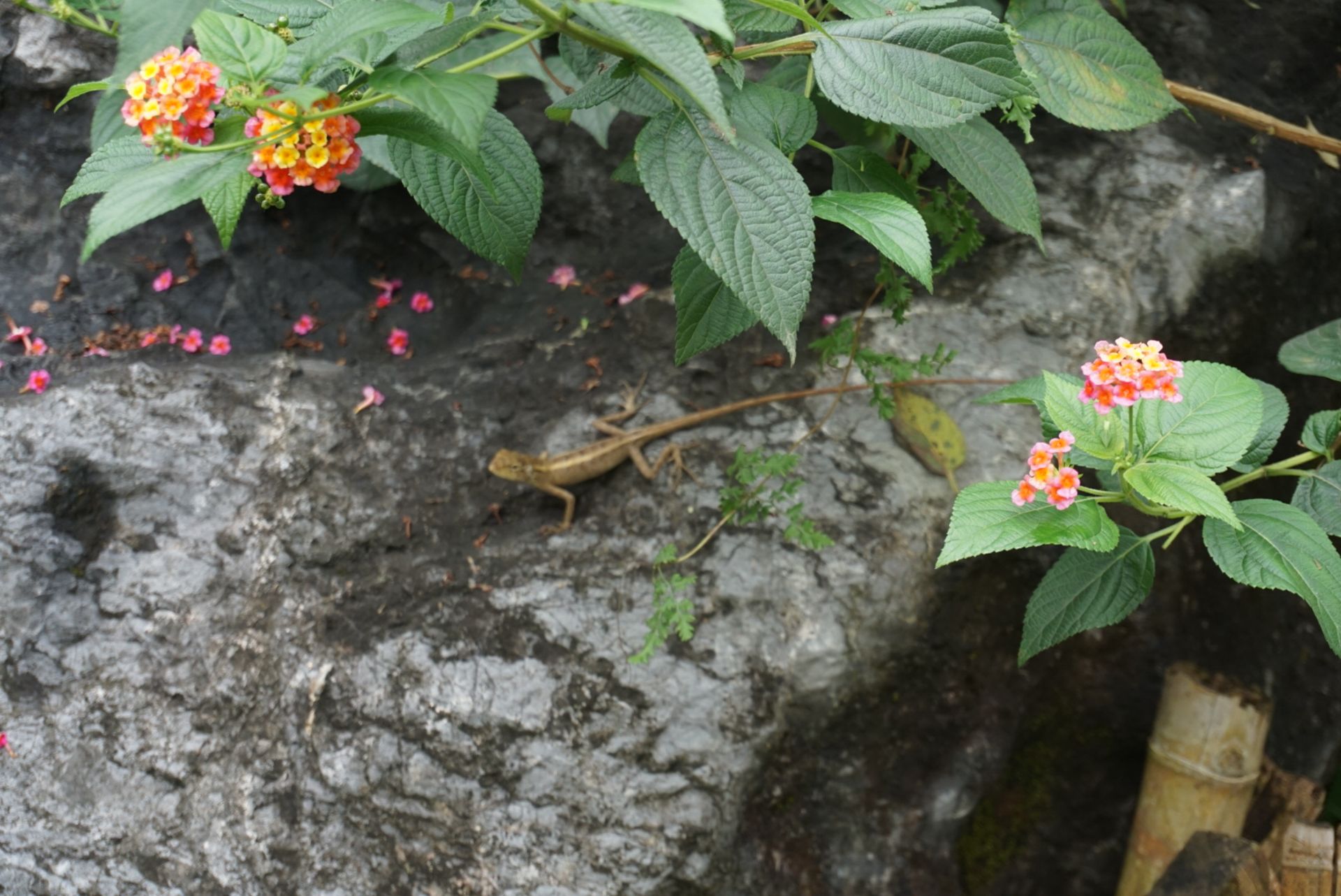
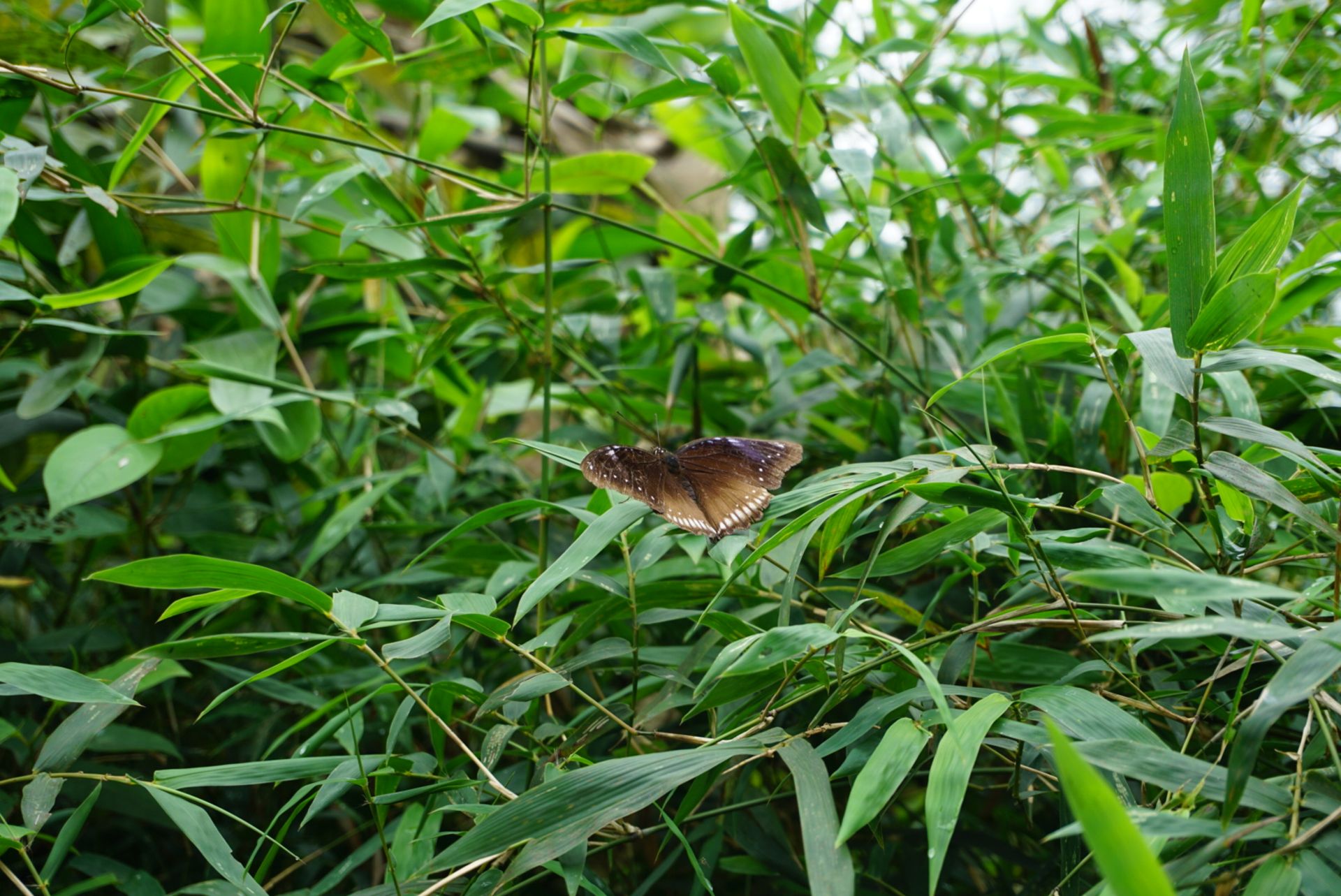
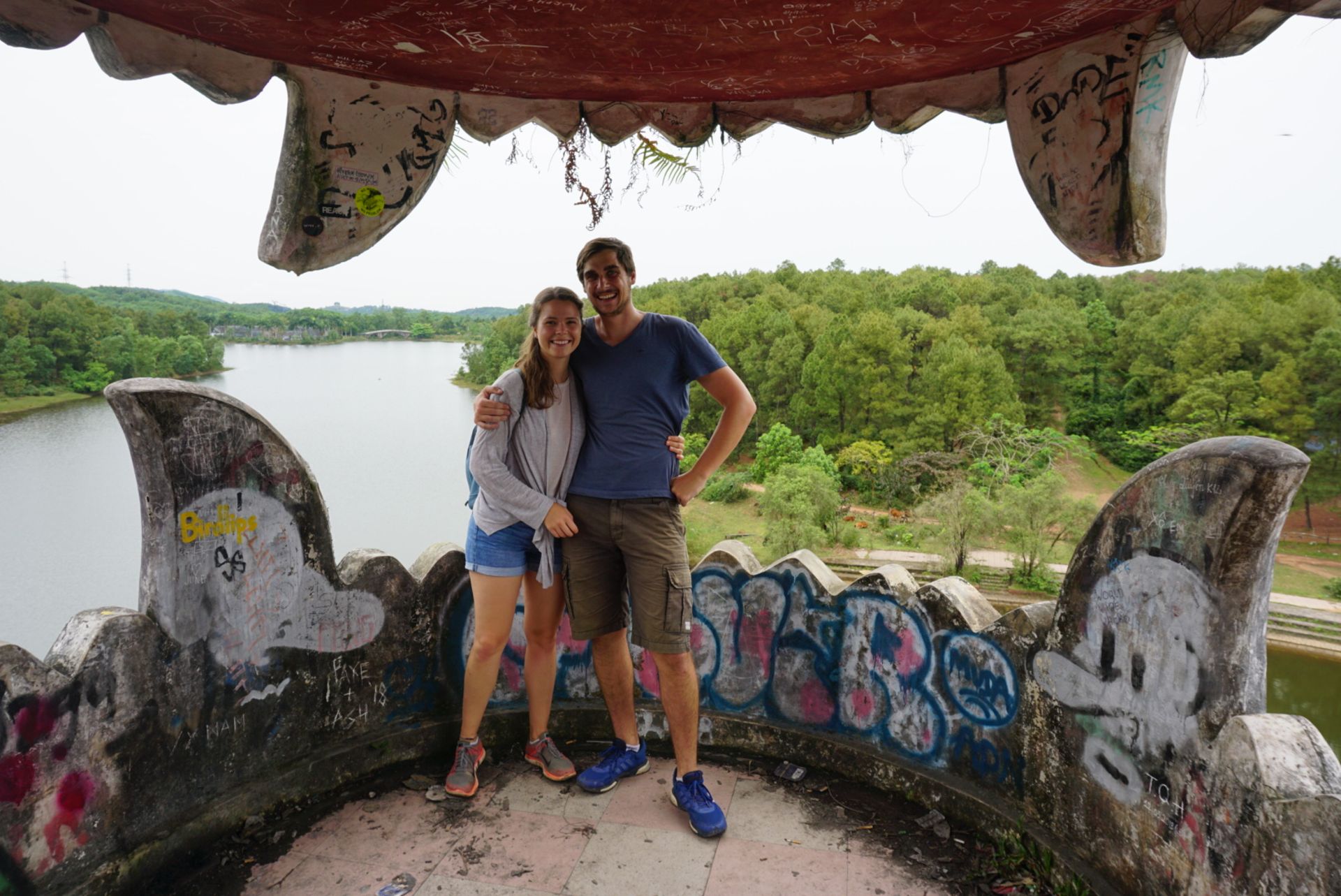
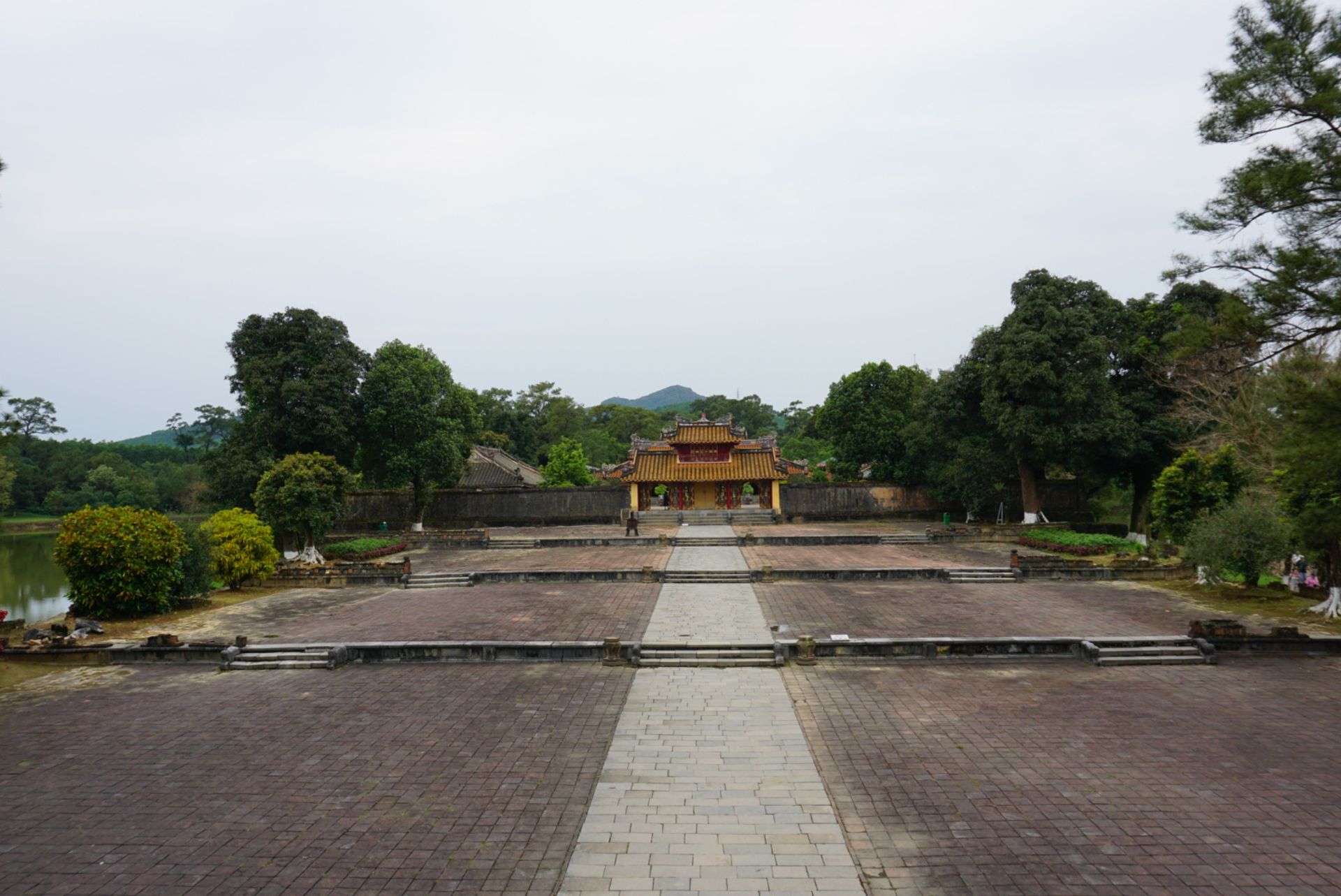
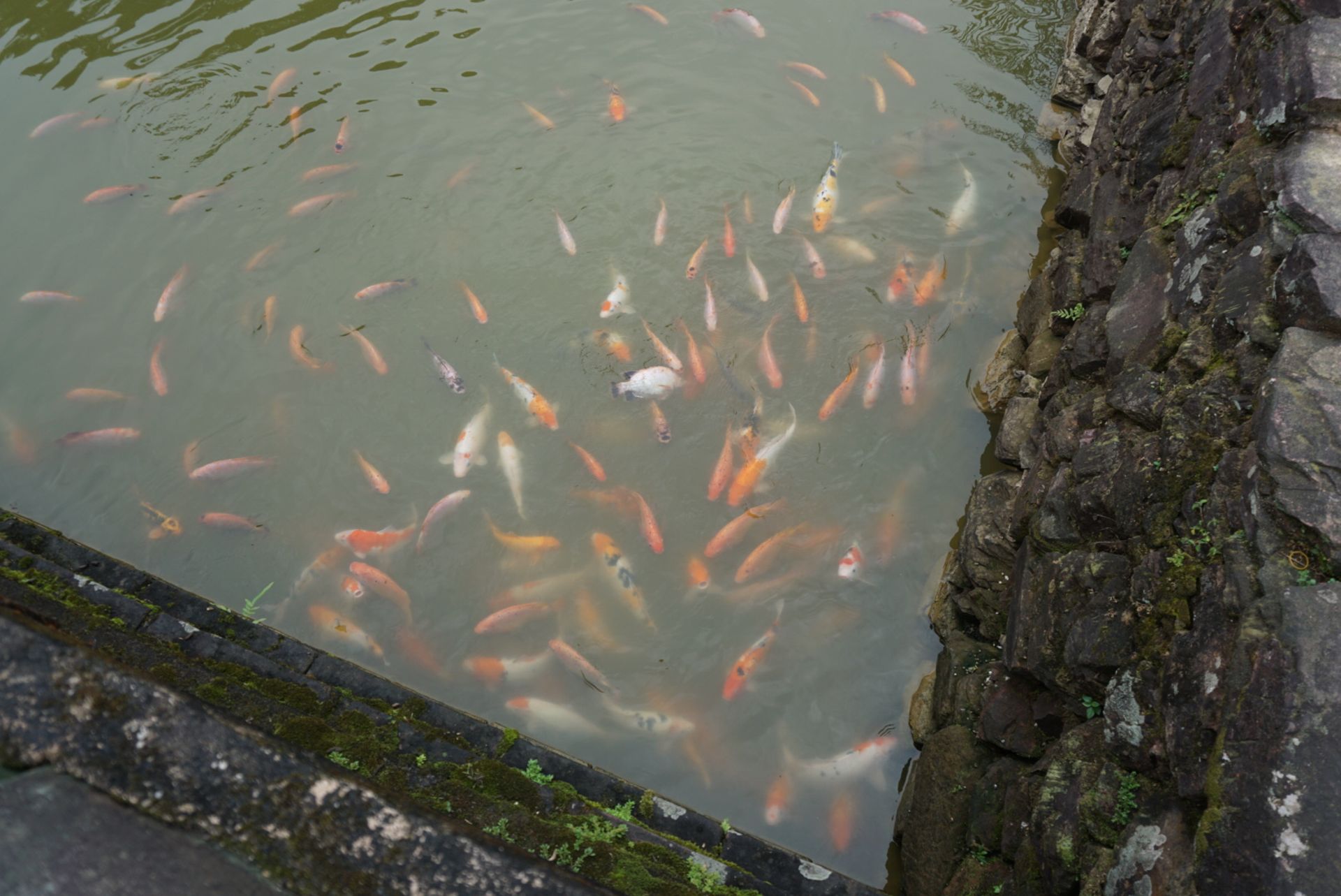
ជាវសំបុត្រព័ត៌មាន
ចម្លើយ

